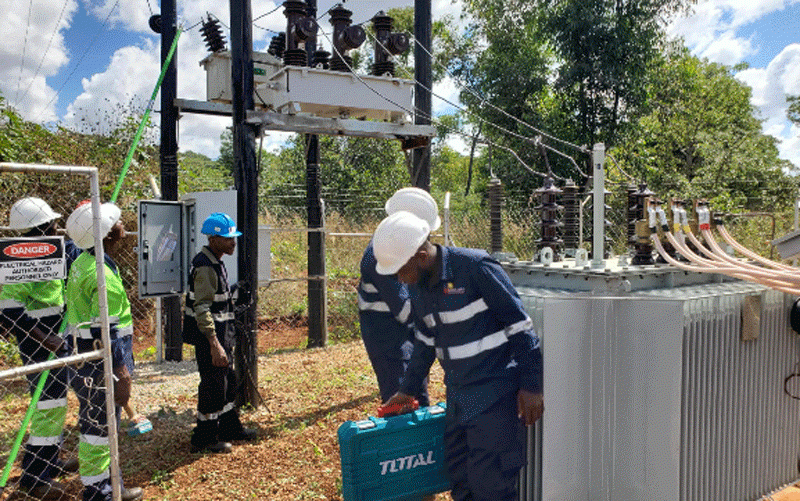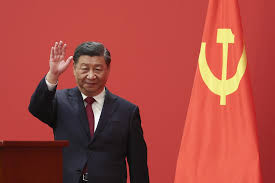
Zimbabwe finds itself at a critical juncture in the energy sector, grappling with an unstable electricity supply that undermines both economic productivity and public welfare.
Chronic power outages, caused by aging infrastructure, equipment breakdowns, and rampant vandalism, have become a persistent challenge.
In response, it is imperative that the nation adopts bold, innovative, and sustainable strategies to ensure energy security and support the country’s long-term developmental goals.
Urgency of diversified power solutions
The demand for reliable electricity is growing rapidly, driven by industrialisation, urbanisation, and digital transformation. Yet, the current energy infrastructure is ill-equipped to meet these demands.
To overcome these challenges, Zimbabwe must accelerate the exploration and adoption of diversified energy sources — including solar, wind, hydro, and modern biomass technologies — to complement traditional power generation.
This multi-pronged approach will not only stabilise energy supply, but also enhance resilience against climate change and external shocks.
The role of strategic investment partnerships
- Village Rhapsody: Why project managers fail in Zimbabwe
- Village Rhapsody: Why project managers fail in Zimbabwe
- Village Rhapsody: Why project managers fail in Zimbabwe
- Power outages causing revenue loss: BCC
Keep Reading
As part of broader energy sector reforms, there is an urgent need for the government to launch a robust and well-coordinated campaign aimed at attracting credible investors — both local and international. Public-private partnerships and foreign direct investment
can play a transformative role in bringing advanced technology, capital, and expertise into Zimbabwe’s energy sector.
A compelling investment model to consider is the Build-Operate-Transfer framework. Under this arrangement, private investors finance, construct, and operate energy infrastructure for a specified period, after which ownership is transferred to the government or local stakeholders.
This model not only facilitates technology transfer but ensures long-term sustainability through skills development and knowledge retention.
Creating a conducive business environment
To attract quality investors, Zimbabwe must create a more predictable and investor-friendly environment. This includes:
-Reforming regulatory frameworks to streamline licensing procedures and reduce bureaucratic red tape.
-Offering fiscal and non-fiscal incentives such as tax breaks, duty-free importation of critical equipment, and guarantees against expropriation.
-Enhancing transparency and accountability to build investor confidence.
-Simplifying entry requirements for foreign energy players to operate in Zimbabwe without compromising national interests.
Such reforms will improve Zimbabwe’s global competitiveness and position the country as a preferred destination for energy investment.
Leveraging tourism to market energy opportunities
Tourism, often seen purely from a cultural and ecological perspective, can also serve as a strategic tool to promote Zimbabwe's investment potential.
By integrating energy sector outreach into tourism promotion — such as through investment expos, international forums, and sector-specific indabas — Zimbabwe can showcase its untapped energy potential to global investors visiting the country.
These initiatives can be coordinated between tourism and energy sector stakeholders to maximise exposure and ensure that visiting delegates leave with a clear understanding of the opportunities available in the power sector.
Technology transfer and capacity building
Beyond financial capital, foreign investment offers Zimbabwe the opportunity to leapfrog outdated technologies and build local capacity. By engaging with countries that have successfully modernised their energy sectors — such as China, Germany, and the United Arab Emirates — Zimbabwe can learn best practices in renewable energy integration, smart grid deployment, and power storage solutions.
Technical training programmes, exchange partnerships, and research collaborations can be established to empower local engineers, technicians, and entrepreneurs to lead future energy projects.
Empowering local players
While foreign investors are crucial, Zimbabwe must not overlook the immense potential of local enterprises. Many indigenous companies are eager to contribute but are hindered by limited access to financing, stringent regulatory requirements, and high operational costs. Government support through financial guarantees, concessional loans, and statutory instruments can enable these players to establish and scale up power generation projects that feed meaningful capacity into the national grid.
Supporting local players not only builds national self-reliance but also catalyses job creation and economic diversification through upstream and downstream value chains.
Energy as a catalyst for Vision 2030 and SDG 7
Energy is the lifeblood of industrialisation, and without it, the realisation of Vision 2030 — Zimbabwe’s ambition to become an upper-middle-income economy — remains elusive. Additionally, the country’s commitment to Sustainable Development Goal 7 (SDG 7) — ensuring access to affordable, reliable, sustainable, and modern energy for all — requires accelerated action.
Achieving these milestones necessitates not just policy alignment but deep collaboration among government, private sector, civil society, and the global community.
Conclusion
A national imperative
The future of Zimbabwe’s energy sector rests in our collective hands. It is incumbent upon us, as Zimbabweans, to project our nation positively and strategically position our energy landscape as a hub of opportunity. Government, private stakeholders, and citizens must work in tandem to create an environment that attracts investment, fosters innovation, and delivers tangible benefits to all.
Energy is not just a sector — it is the foundation of economic growth, social development, and national sovereignty. By harnessing our potential and welcoming strategic partnerships, Zimbabwe can illuminate its path toward prosperity and resilience.
- Dr Engineer Edzai Kachirekwa can be reached on email: [email protected] /+263719742022











